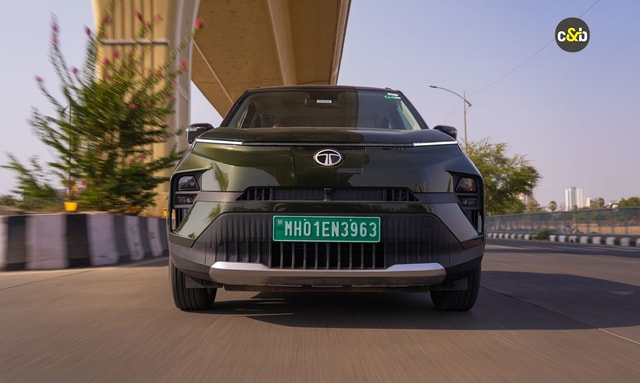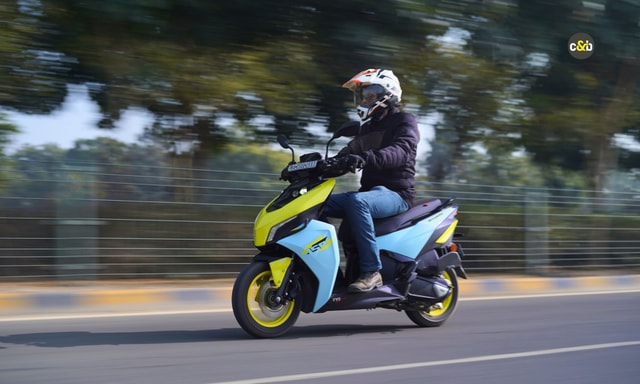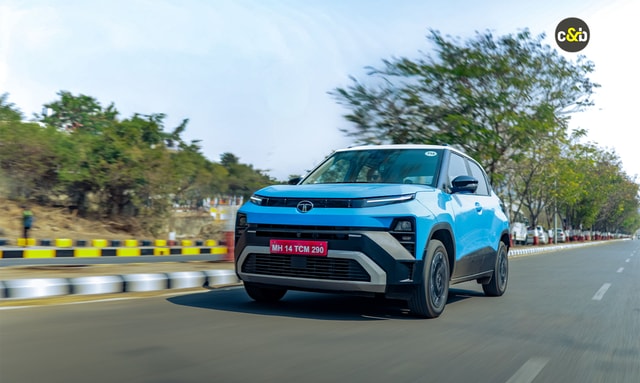Problems Affecting the Performance of Turbocharged Engines

Manufacturers have always been looking for ways to increase the efficiency and performance of an engine. Turbocharged engines have been the rage ever since their introduction. Turbocharged engines comprise turbines and compressors that use wasteful exhaust gas to harness energy for the vehicle. Although the system works well, there is a major point that people tend to overlook for these engines – the fuel efficiency. Fuel efficiency can be a big problem for these engines!

What is fuel efficiency?
Fuel efficiency refers to the ability of the vehicle to convert the fuel from the engine to generate power. More fuel efficiency means more power generation with lesser effort.

Photo Credit: pixabay.com
Fuel efficiency problems
Turbocharged engines should work perfectly concept-wise. The fact is, these use up the waste exhaust gases which might be emitted into the atmosphere and generate more power. Even though the targets of increased power generation and lower levels of emissions are met, fuel efficiency is a major problem that can be explained by a single term – "knocking."
Knocking is a term used to define defects in engine cylinders. In the case of knocking, the fuel burns unevenly throughout the cylinders. So, some of the mixtures of air and fuel cannot generate enough ignition for the vehicle.
One of the major reasons why knocking takes place is because the pressure and temperature inside the cylinder are way above the operating limit of the cylinder. That leads to the fuel either pre-heating or suffering a lag or not heating up at all.

Photo Credit: pixabay.com
When turbochargers are included along with the engines – the problems start to arise. It is a guarantee that these turbochargers increase the pressure on the engine. That means more chances of misfiring for these chargers.
To counter the knocking problem, the engine control unit delays the ignition. But even this retardation has a certain limit to which it can function. For higher RPMs, more fuel is injected into the engines. So, when the onset of knocking is seen, the turbocharger injects more fuel into the cylinder, reducing the pressure and temperature. But that severely affects the fuel efficiency since more fuel is being injected for the engine's functioning.
So, more throttling inflated this problem of over-usage of the vehicle's fuel. This means that the efficiency of turbocharged engines is much less than traditional engines. One way to avoid such a problem is to do what one does with traditional vehicles but much more vigorously – being careful of one's driving style and avoiding wide open throttling conditions! The moderation of the feet while driving needs to be more careful and deliberate.
Latest News
 car&bike Team | Feb 6, 2026Indian Motorcycle Parts Ways With PolarisAs America’s first motorcycle brand prepares to celebrate its 125th anniversary, Indian Motorcycle has parted ways with former parent Polaris to become an independent company.1 min read
car&bike Team | Feb 6, 2026Indian Motorcycle Parts Ways With PolarisAs America’s first motorcycle brand prepares to celebrate its 125th anniversary, Indian Motorcycle has parted ways with former parent Polaris to become an independent company.1 min read car&bike Team | Feb 6, 2026BMW F 450 GS Based Sportbike Spotted On TestThe upcoming supersport machine is expected share the same parallel-twin engine with the upcoming BMW F 450 GS.1 min read
car&bike Team | Feb 6, 2026BMW F 450 GS Based Sportbike Spotted On TestThe upcoming supersport machine is expected share the same parallel-twin engine with the upcoming BMW F 450 GS.1 min read car&bike Team | Feb 6, 2026Tata Sierra Bookings Cross 1 Lakh Mark; Production Ramped UpWith bookings now in six-digit territory, Tata Motors is moving ahead with a phased ramp-up in production, while working through supplier-related constraints.1 min read
car&bike Team | Feb 6, 2026Tata Sierra Bookings Cross 1 Lakh Mark; Production Ramped UpWith bookings now in six-digit territory, Tata Motors is moving ahead with a phased ramp-up in production, while working through supplier-related constraints.1 min read car&bike Team | Feb 6, 2026Mahindra To Set Up Its Biggest Automobile Plant In Nagpur; Production To Begin In 2028The new facility will support next-generation platforms from the brand and will be capable of manufacturing multiple powertrains including ICE, EV & future technologies1 min read
car&bike Team | Feb 6, 2026Mahindra To Set Up Its Biggest Automobile Plant In Nagpur; Production To Begin In 2028The new facility will support next-generation platforms from the brand and will be capable of manufacturing multiple powertrains including ICE, EV & future technologies1 min read Jaiveer Mehra | Feb 5, 2026Honda Dio 125 X-Edition, Shine 125 Limited Edition LaunchedBoth special editions get a variant-specific colour scheme and graphics.1 min read
Jaiveer Mehra | Feb 5, 2026Honda Dio 125 X-Edition, Shine 125 Limited Edition LaunchedBoth special editions get a variant-specific colour scheme and graphics.1 min read Seshan Vijayraghvan | Feb 5, 2026Tata Punch EV Facelift To Be Launched On February 20The electric version of Tata’s SUV-esque hatchback will be launched on February 20, 2026, and, like the petrol-powered version, it will receive a range of visual and feature upgrades.2 mins read
Seshan Vijayraghvan | Feb 5, 2026Tata Punch EV Facelift To Be Launched On February 20The electric version of Tata’s SUV-esque hatchback will be launched on February 20, 2026, and, like the petrol-powered version, it will receive a range of visual and feature upgrades.2 mins read
 Bilal Firfiray | Feb 4, 2026Volkswagen Tayron R-Line Review: Sensible Flagship For IndiaVolkswagen has introduced a made-in-India flagship SUV that offers space, comfort, performance, and German driving finesse in a practical three-row package. But is the Tayron R-Line good enough?6 mins read
Bilal Firfiray | Feb 4, 2026Volkswagen Tayron R-Line Review: Sensible Flagship For IndiaVolkswagen has introduced a made-in-India flagship SUV that offers space, comfort, performance, and German driving finesse in a practical three-row package. But is the Tayron R-Line good enough?6 mins read Preetam Bora | Feb 2, 2026TVS NTorq 150 Road Test Review: Bigger, Better & More Efficient!We test the new TVS NTorq 150 out in the real world to get a sense of what it offers in terms of performance, dynamics and fuel economy.7 mins read
Preetam Bora | Feb 2, 2026TVS NTorq 150 Road Test Review: Bigger, Better & More Efficient!We test the new TVS NTorq 150 out in the real world to get a sense of what it offers in terms of performance, dynamics and fuel economy.7 mins read Bilal Firfiray | Jan 21, 2026Tata Punch Facelift Review: New Turbo Engine; Same Old SoulWith the update, the Tata Punch facelift retains its character of being a healthy runabout, which is perfect for Indian roads. But have these changes made it any better?7 mins read
Bilal Firfiray | Jan 21, 2026Tata Punch Facelift Review: New Turbo Engine; Same Old SoulWith the update, the Tata Punch facelift retains its character of being a healthy runabout, which is perfect for Indian roads. But have these changes made it any better?7 mins read Amaan Ahmed | Jan 17, 2026Bajaj Chetak C25 First Ride Review: Basic, Likeable E-Scooter For First-Time RidersThe Chetak C25, in quite a few ways, is poles apart from the larger and more powerful 30 and 35 Series models, but in its mannerisms, it is very much a Chetak.8 mins read
Amaan Ahmed | Jan 17, 2026Bajaj Chetak C25 First Ride Review: Basic, Likeable E-Scooter For First-Time RidersThe Chetak C25, in quite a few ways, is poles apart from the larger and more powerful 30 and 35 Series models, but in its mannerisms, it is very much a Chetak.8 mins read Bilal Firfiray | Jan 9, 2026Toyota Urban Cruiser Hyryder: 10,000 km Long-Term ReviewAfter spending over three months and 10,000 km with the Toyota Urban Cruiser Hyryder Hybrid, we were impressed by its real-world mileage, seamless hybrid, practical comfort, and Toyota reliability. Is it the best C-SUV then?5 mins read
Bilal Firfiray | Jan 9, 2026Toyota Urban Cruiser Hyryder: 10,000 km Long-Term ReviewAfter spending over three months and 10,000 km with the Toyota Urban Cruiser Hyryder Hybrid, we were impressed by its real-world mileage, seamless hybrid, practical comfort, and Toyota reliability. Is it the best C-SUV then?5 mins read




























































































































